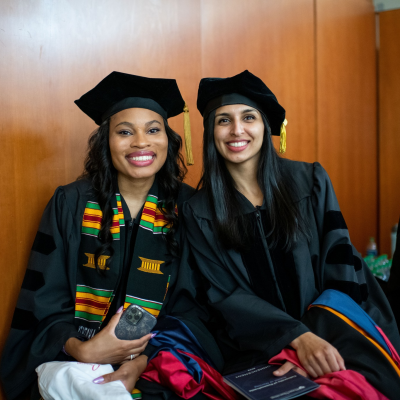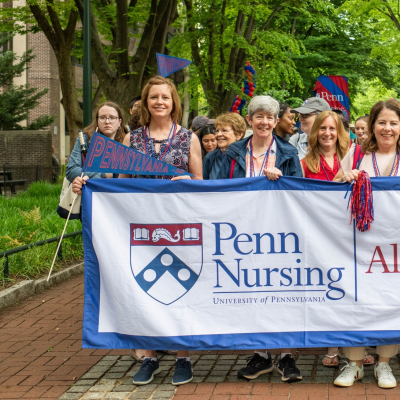A Firsthand Look at Traditional Chinese Medicine in Thailand
During a nine-day winter break trip, students in Jianghong Liu’s Penn Global seminar experienced and learned about practices like tea therapy, cupping, Qi Gong, and more.
February 20, 2023

Before this year, the class taught by Liu (center, in red) visited China. The pandemic caused the pivot to Thailand, where Liu brought 20 students—the largest group she’s ever taken—to experience Traditional Chinese Medicine practices like Qi Gong, taught by Qi Gong Master Yin Quan (center, in white). (Image: Courtesy of Penn Global)
For anyone who’s ever had a sore throat, hot tea offers a welcome reprieve. But as Penn third year Kevin Huang learned recently on a Penn Global seminar trip to Thailand, not all teas are created equally.
“Teas have different herbal properties, so they can be hot or cold, and they have different flavor profiles, like pungent, sour, sweet, salty, bitter,” explains Huang, a cell and molecular biology major from Bellmawr, New Jersey. “Each affects your body differently. Some can relieve cough; some are meant to help lower cholesterol. There are teas that address fatigue or insomnia and some for relieving stress.”
At this particular tea therapy workshop, Huang tried a varietal meant to boost energy. Fourth year School of Nursing student Linda Jiang tasted one that reduces stress and anxiety, surrounded by 18 other Penn students, who created and sipped herbal elixirs of their own. The session was one of many during a trip that capped off the Exploring Traditional Chinese Medicine (TCM) course taught by Penn Nursing’s Jianghong Liu, PhD, RN, FAAN, and supported by the China Education Initiative, a new Penn Global program focused on the emerging, complex issues that shape China and the world. Liu is the Marjorie O. Rendell Endowed Professor in Healthy Transitions, and the Faculty Director of Penn Nursing’s Global Health Minor
On campus this past semester, the class delved into complementary and alternative medicine techniques like acupuncture and cupping, Gua Sha (skin scraping) and Qi Gong (movements to optimize the body’s energy flow). Then for nine days in late December and early January, the students learned about and experienced these practices at partner institution Huachiew Chalermprakiet University and other spots in Thailand.
This is an excerpt from a longer story which was first published in Penn Today. It was written by Michele Berger, senior science news officer in University Communications.








